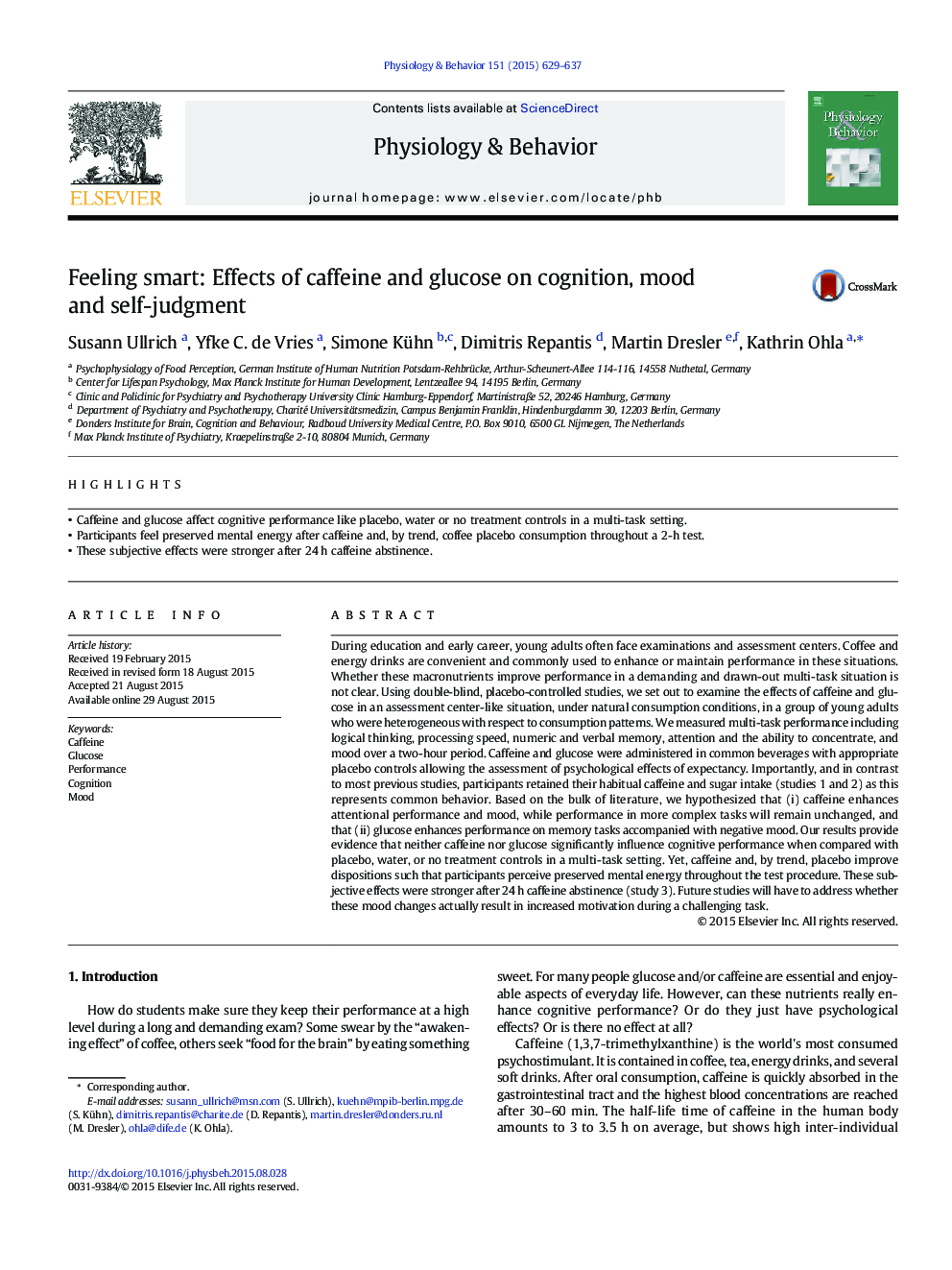| کد مقاله | کد نشریه | سال انتشار | مقاله انگلیسی | نسخه تمام متن |
|---|---|---|---|---|
| 5923388 | 1571166 | 2015 | 9 صفحه PDF | دانلود رایگان |
- Caffeine and glucose affect cognitive performance like placebo, water or no treatment controls in a multi-task setting.
- Participants feel preserved mental energy after caffeine and, by trend, coffee placebo consumption throughout a 2-h test.
- These subjective effects were stronger after 24Â h caffeine abstinence.
During education and early career, young adults often face examinations and assessment centers. Coffee and energy drinks are convenient and commonly used to enhance or maintain performance in these situations. Whether these macronutrients improve performance in a demanding and drawn-out multi-task situation is not clear. Using double-blind, placebo-controlled studies, we set out to examine the effects of caffeine and glucose in an assessment center-like situation, under natural consumption conditions, in a group of young adults who were heterogeneous with respect to consumption patterns. We measured multi-task performance including logical thinking, processing speed, numeric and verbal memory, attention and the ability to concentrate, and mood over a two-hour period. Caffeine and glucose were administered in common beverages with appropriate placebo controls allowing the assessment of psychological effects of expectancy. Importantly, and in contrast to most previous studies, participants retained their habitual caffeine and sugar intake (studies 1 and 2) as this represents common behavior. Based on the bulk of literature, we hypothesized that (i) caffeine enhances attentional performance and mood, while performance in more complex tasks will remain unchanged, and that (ii) glucose enhances performance on memory tasks accompanied with negative mood. Our results provide evidence that neither caffeine nor glucose significantly influence cognitive performance when compared with placebo, water, or no treatment controls in a multi-task setting. Yet, caffeine and, by trend, placebo improve dispositions such that participants perceive preserved mental energy throughout the test procedure. These subjective effects were stronger after 24Â h caffeine abstinence (study 3). Future studies will have to address whether these mood changes actually result in increased motivation during a challenging task.
Journal: Physiology & Behavior - Volume 151, 1 November 2015, Pages 629-637
